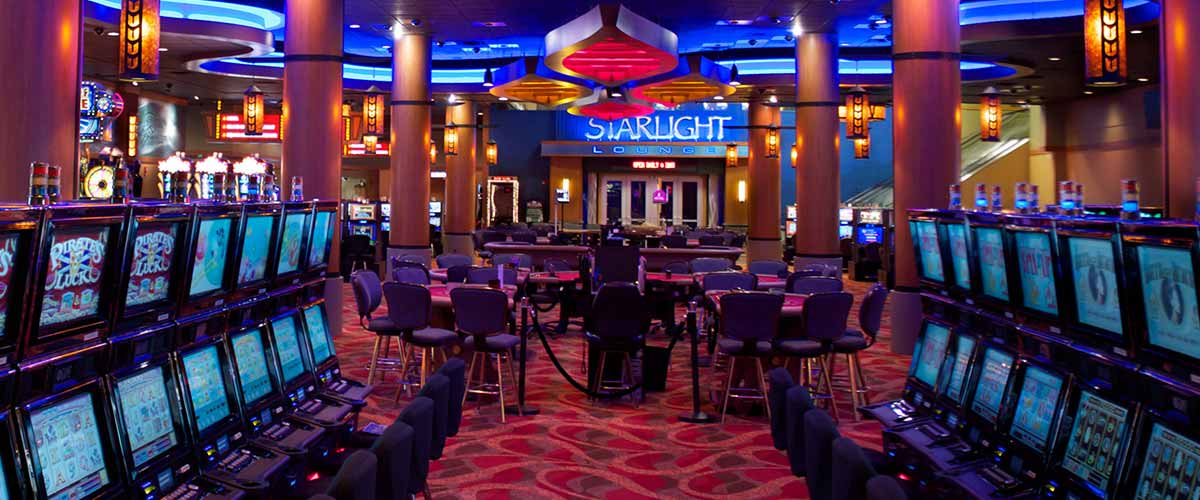
Gambling has been an important part of human recreation for thousands of years, developing through societies and eras to become the vibrant casino activities we know today. From the historical Chinese and Romans, who engaged in different forms of betting and luck, to the sophisticated gaming floors of today’s casinos, the appeal of gamble and winning has enchanted individuals across the globe. The transition from basic dice games and rudimentary betting setups to the extravagant environments of contemporary casinos reflects major strides in both cultural standards and technological advancements.
As cultures evolved, so too did the complexity of gambling activities, with gambling activities emerging as a separate category of leisure and excitement. These games have changed from informal gatherings centered around wooden tables to sprawling, opulent establishments designed to entice players. Today, we explore this fascinating journey, analyzing how historical practices laid the groundwork for the varied and exciting casino activities that bring pleasure to millions worldwide.
spintax
Historical Betting Practices
Gambling has profound roots in human past, with indications of games of chance originating from ancient societies. Archaeologists have found that as far back as 3000 BC, the Chinese were using basic forms of gambling with dice made from bones. Similarly, ancient Mesopotamians engaged in betting activities, often relying on the tossing of lots or dice to determine results. These early forms of betting served not only as entertainment but also played vital roles in social and cultural practices. trực tiếp bóng đá
The Egyptians also took part in gambling activities, with games that included betting on the outcomes of various events, including sports and spiritual festivals. Items such as dice and depictions of gamblers from ancient tombs demonstrate that gambling was a popular pastime. It provided both entertainment and a means of engaging in social interaction, often linked to celebratory occasions or major gatherings. This activity demonstrated the universal appeal of chance and competition throughout the ages. okwintv
In ancient Rome, betting became a commonplace practice among the citizens, as shown in references in literature and the establishment of guidelines around certain activities. Romans enjoyed a variety of gambling activities, from betting on chariot races to playing games similar to modern-day board games. The legal framework surrounding these activities began to take shape, establishing the foundations for gambling regulations that would evolve in the centuries to come. The popularity of betting during this period set the stage for the development of casino games in the future.
The Evolution of Gambling Games
Gambling games have undergone substantial transformations from their beginnings to the modern-day entertainment selections. In early civilizations, gaming was commonly linked to ceremonial practices, with dice games found in Mesopotamia and betting on the outcomes of events in ancient Rome. These initial forms of gambling laid the groundwork for the structured games we see today. The change from informal gambling to organized games happened as societies began establishing rules and venues for wagering, showing cultural values and practices.
The medieval period saw the rise of card games, which gained recognition among the nobility of Europe nobility. Games like the first and the game baccarat became mainstays in social gatherings. The invention of printing technology additionally aided the spread of playing cards, making them more reachable to the masses. As gambling houses began to multiply, these card games transformed into adaptations that appealed to wider audiences, eventually leading to the establishment of casinos as exclusive venues for gaming.
The 20th century marked a crucial point in the development of casino games, with the growth of commercial casinos in Las Vegas and other betting centers. This era introduced games like slot machines and modern versions of table games, complete with high-quality graphics and complex betting structures. The arrival of online casinos in the tail end of the 1990s additionally transformed the gaming industry, allowing players to access a vast array of casino games from the safety of their homes. Today, gambling games persist to evolve, blending time-honored elements with advanced technology to create engaging experiences for players worldwide.
Modern Gaming Laws
In recent years, the area of gambling regulations has evolved substantially, especially as tech advances and internet-based gambling have become more prevalent. Authorities around the planet have enacted multiple regulations and guidelines to guarantee that gambling activities are carried out fairly, with responsibility, and transparently. These regulations often cover elements such as licensing, advertising, gambler protection, and responsible gaming measures. Authorities aim to reduce problems such as problem gambling and cheating while fostering a fair gaming environment.
The rise of online gambling sites has necessitated a fresh approach to oversight. Many jurisdictions have established dedicated internet-based gaming structures that serve internet-based gambling, enabling operators to offer their services within the law. These frameworks often demand operators to get permits, adhere to strict security standards, and provide customer support options to assist players. By closely supervising online activities, authorities can more effectively protect players from potential harm and make sure that gaming is carried out in a protected manner.
Additionally, contemporary gaming regulations are increasingly concentrating on sensible gaming strategies. Many gaming establishments and internet-based platforms now implement features such as player exclusion, deposit limits, and breaks to help players control their gaming habits. Awareness campaigns aimed at educating about the dangers of gambling are also widespread. As the sector continues to grow, the emphasis on sensible gaming continues to be a cornerstone of governing efforts, reflecting a commitment to promoting a secure and enjoyable gambling experience for all players.
